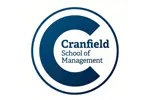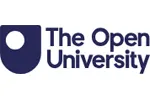This unique course covers a wide range of applications focused on aerospace computational aspects. Within the next five years there will be a demand for engineers and leaders who will be using 100% digital techniques for aerospace applications, design and testing.
Who is it for?
With its blend of skills-based and subject-specific material this course aims to provide students with generic practical skills and cutting-edge knowledge adaptable to the wide variety of applications in the field of aerospace computational engineering.
The part-time option is suitable for qualified engineers to extend their knowledge and incorporate CFD into their skill set.
Why this course?
This course aims to enhance your skills through a detailed introduction to the state-of-the-art computational methods and their applications for digital age aerospace engineering applications. It provides a unique opportunity for cross-disciplinary education and knowledge transfer in the computational engineering of fluid and solid mechanics for aerospace industrial applications. Focusing on fully integrated digital design for aerospace applications, you will be able to understand and implement numerical methods on various computing platforms for aerospace applications. You will be able to meet the demand of an evolving workplace that requires highly qualified engineers possessing core software engineering skills together with competency in mathematical analysis techniques.
Sharing modules with the MSc in Computational Fluid Dynamics and the MSc in Computational and Software Techniques in Engineering, this course gives you the opportunity to interact with students from other disciplines.
Informed by industry
Our strategic links with industry ensure that all of the materials taught on the course are relevant, timely and meet the needs of organisations competing within the computational analysis sector. This industry-led education makes Cranfield graduates some of the most desirable for companies to recruit. Our industrial partners support this course by providing internships, acting as visiting lectures and delivering industrial seminars.





